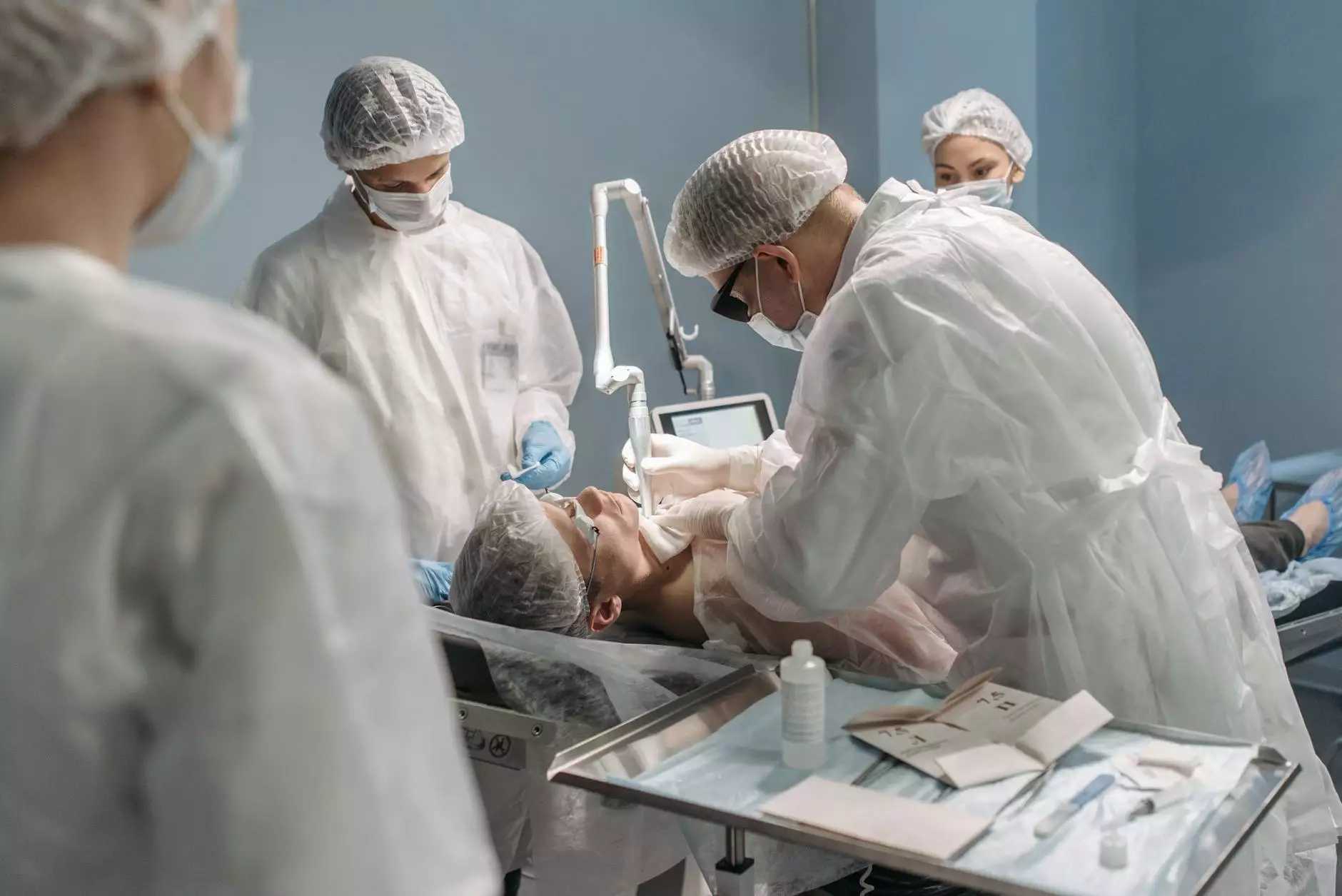Lung Nodule Surgery: Understanding the Procedure, Benefits, and Recovery

Lung nodule surgery is a pivotal procedure for diagnosing and treating various pulmonary conditions. As healthcare advances, the competencies in managing lung nodules have significantly improved. This article aims to provide a thorough exploration of lung nodule surgery, encompassing its significance, methodologies, preparation, risks, and recovery process.
What are Lung Nodules?
Lung nodules are small masses of tissue in the lungs, often identified through imaging techniques such as X-rays or CT scans. They can vary in size and may be benign or malignant. Understanding the nature of a lung nodule is crucial as it can impact treatment decisions.
- Types of Lung Nodules:
- Benign Nodules: Often infectious granulomas, hamartomas, and other non-cancerous formations.
- Malignant Nodules: Indicative of lung cancer or metastasis from other cancer types.
The Importance of Lung Nodule Surgery
While not all lung nodules necessitate treatment, specific cases require surgical intervention to establish a definitive diagnosis or remove malignant growths. The importance of lung nodule surgery cannot be overstated due to the following reasons:
- Accurate Diagnosis: A biopsy during surgery can determine the presence of cancerous cells.
- Treatment of Malignant Nodules: Surgical removal can be the first step toward treating lung cancer effectively.
- Monitoring Growth: Removal allows for better observation and analysis of the nodule’s behavior.
Preparing for Lung Nodule Surgery
Preparation for lung nodule surgery involves several steps, and patients need to be well-informed about what to expect. It is essential to consult with your healthcare provider to discuss the specifics of your situation. Here are some crucial preparatory steps:
- Preoperative Evaluation: A series of tests including imaging studies, blood tests, and pulmonary function tests will be conducted to assess your overall health and readiness for surgery.
- Medications: Discuss current medications with your doctor. Some medications may need to be adjusted or paused.
- Smoking Cessation: If you smoke, quitting before surgery can significantly improve recovery outcomes.
- Nutritional Status: Eating a balanced diet and maintaining hydration before the surgery are essential.
Types of Lung Nodule Surgery
There are various surgical techniques for lung nodules, each suited to specific conditions and patient needs. Here are the most common types:
- Video-Assisted Thoracoscopic Surgery (VATS): A minimally invasive technique that involves small incisions and the use of a camera to guide the surgeon.
- Open Lobectomy: This procedure involves the removal of a lobe of the lung containing the nodule and is more invasive.
- Surgical Biopsy: Aimed at obtaining tissue samples from the nodule to evaluate its nature without complete removal.
- Segmentectomy: Involves the removal of a segment of the lung, preserving more lung tissue compared to a lobectomy.
The Surgery Procedure
Understanding the surgical process and what happens during lung nodule surgery can alleviate concerns. This section outlines the typical procedure:
- Anesthesia: Patients receive general anesthesia to ensure they are unconscious and pain-free during the procedure.
- Incision: Depending on the surgical technique, the surgeon makes an incision or incisions to access the lung.
- Removal or Biopsy: The nodule is either removed in whole or part or a biopsy is performed to collect tissue samples.
- Closure: Once the procedure is complete, the surgeon will close the incisions, sometimes placing drainage tubes if necessary.
Benefits of Lung Nodule Surgery
Undergoing lung nodule surgery offers numerous advantages, particularly when diagnosed with potentially harmful nodules:
- Increased Survival Rates: Early diagnosis and treatment of lung cancer can lead to better outcomes.
- Improved Quality of Life: Removal of malignant nodules can alleviate symptoms and enhance overall wellbeing.
- Reduced Anxiety: Knowing the definitive nature of the nodule can relieve worries for patients and their families.
Possible Risks and Complications
As with any surgical procedure, lung nodule surgery carries potential risks. It is essential to discuss these with your doctor:
- Infection: There's a risk of infection at the incision site.
- Bleeding: Excessive bleeding may occur during or after the procedure.
- Pneumothorax: Air may escape into the chest cavity, causing lung collapse.
- Reactions to Anesthesia: Some patients may experience adverse reactions to anesthesia.
Postoperative Care and Recovery
Recovery following lung nodule surgery is a critical phase that requires attention and care. Below are the vital aspects of postoperative care:
- Hospital Stay: The duration of your hospital stay will depend on the complexity of the surgery and your overall health.
- Pain Management: Your healthcare team will provide medications to manage pain effectively.
- Gradual Resumption of Activities: Avoid strenuous activities until cleared by your doctor, typically after a few weeks.
- Follow-Up Appointments: Regular follow-ups are crucial to monitor recovery progress and detect any complications early.
Conclusion: The Path Forward
Lung nodule surgery represents a vital step in confronting lung health concerns effectively. As part of Neumark Surgery, we are dedicated to providing high-quality medical care and guiding patients through every step of their surgical journey. If you or someone you know is facing the prospect of lung nodule surgery, it is imperative to engage in comprehensive discussions with your healthcare provider to understand the risks, benefits, and expected outcomes.
With advancements in technology and surgical techniques, the future of lung nodule treatment is brighter than ever, promising improved patient experiences and outcomes.
For more information about lung nodule surgery or to schedule a consultation, visit Neumark Surgery today.



